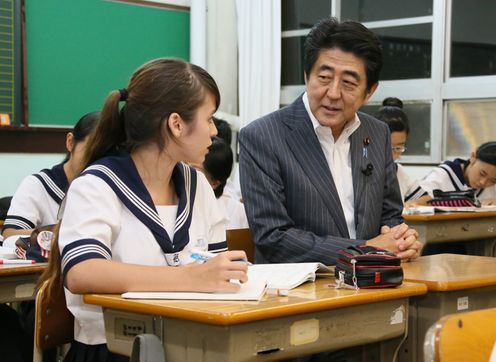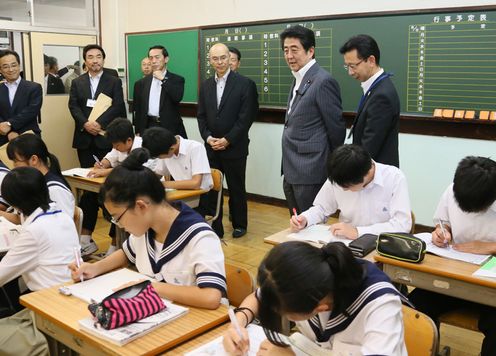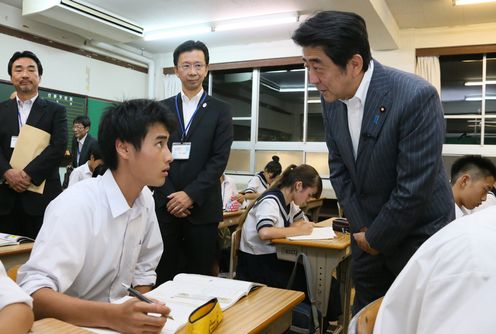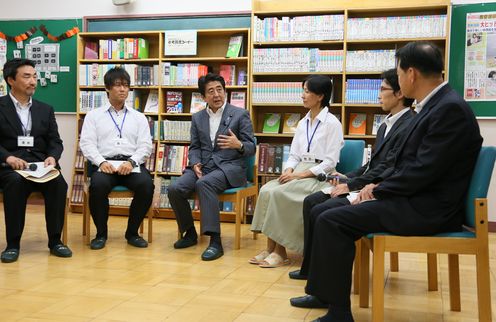Home > News > The Prime Minister in Action > September 2014 > The Prime Minister Observes a Supplementary Night Class at a Junior High School
The Prime Minister Observes a Supplementary Night Class at a Junior High School
Thursday, September 18, 2014

Photograph of the Prime Minister talking with one of the students (1)

Photograph of the Prime Minister observing the class in session

Photograph of the Prime Minister talking with one of the students (2)

Photograph of the Prime Minister attending a meeting to exchange views
Prime Minister Shinzo Abe visited a Tokyo Metropolitan Junior High School in Katsushika City, Tokyo to observe a supplementary night class provided to students.
After observing the class in session, the Prime Minister attended a meeting to exchange views with the volunteer instructors.
After his visit, the Prime Minister stated,
“Today I observed a supplementary night class organized by Katsushika City. This reinforced in me the importance of the roles that communities and schools play in supporting the desire to learn among students. I believe that the support of those in the community, volunteers and program alumni in helping to spread this type of learning assistance will help to realize a society where children with the desire to learn are not prevented from doing so, regardless of their situation.
In addition, I had the chance to talk with social workers. Today, there are children faced with a variety of issues; for example, child abuse. I have reaffirmed the importance of social workers talking one on one with these children and working with these children’s schools and families to provide various proposals and responses from a welfare standpoint.
The Government plans on increasing the number of these programs, which total around 700 now, to 5,000 over the next five years. We would also like to increase the number of social workers at schools from the current 1,500 to 10,000 over the next five years. The Government is firmly committed to supporting children’s desire to learn and to try their best.



